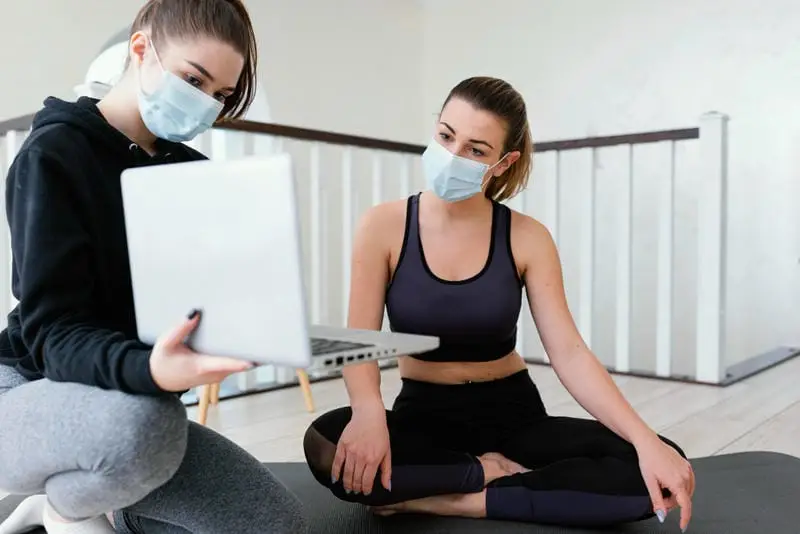Read Blog 
Masseuse Visits: How Monthly Stress Relief Camps Improve Workplace Well-Being
Stress has become one of the most common health challenges of modern life. Long working hours, screen exposure, sedentary routines and emotional pressures create a constant state of physical and mental tension. Over time, this stress accumulates and begins to affect sleep, productivity, immunity and emotional stability. This is why masseuse visits through monthly stress relief camps are emerging as a valuable wellness intervention.
These camps are not about luxury or indulgence. They are structured, preventive wellness initiatives designed to help people relax, reset and restore balance in their bodies and minds.
Why Stress Needs Structured Management
Stress is not always visible, but its impact is real.
Chronic stress contributes to:
According to WHO, unmanaged stress is a significant risk factor for both physical and mental health disorders.
What Are Monthly Stress Relief Camps?
Monthly stress relief camps are organised wellness sessions that focus on relaxation-based therapies. Massage visits form a central component of these camps, where trained therapists provide structured massage sessions aimed at relieving physical tension and calming the nervous system.
These camps typically include:
They are designed to be accessible, time-efficient and safe.
How Massage Therapy Reduces Stress
Massage works through multiple biological pathways.
Nervous System Regulation
Massage activates the parasympathetic nervous system, which is responsible for rest and recovery. This helps:
-
lower heart rate
-
reduce blood pressure
-
calm the mind
Reduction of Stress Hormones
Studies show massage lowers cortisol levels, the primary stress hormone.
Lower cortisol is linked to:
-
improved mood
-
better sleep
-
enhanced immune response
Muscle Relaxation
Long hours of sitting or standing cause muscle stiffness.
Massage helps by:
-
improving blood flow
-
releasing muscle knots
-
reducing stiffness
This improves physical comfort.
Mental Health Benefits of Masseuse Visits
Mental health is closely tied to physical relaxation.
Regular massage sessions:
Lancet research highlights the role of physical relaxation techniques in supporting mental health outcomes.
Why Monthly Frequency Matters
One-time relaxation is not enough.
Monthly camps:
Consistency is the foundation of preventive wellness.
Who Benefits from Stress Relief Camps?
These camps benefit:
Anyone experiencing chronic stress can benefit.
Workplace Impact of Stress
Workplace stress affects both individuals and organisations.
It leads to:
-
reduced productivity
-
burnout
-
absenteeism
-
poor job satisfaction
NITI Aayog reports emphasize the need for preventive wellness initiatives at workplaces.
How Masseuse Visits Improve Workplace Wellness
Enhanced Focus and Productivity
Relaxed muscles and a calm mind improve concentration.
Reduced Musculoskeletal Pain
Massage addresses:
-
neck pain
-
shoulder tension
-
lower back discomfort
Common in desk-based roles.
Better Sleep Quality
Stress relief improves sleep, which further enhances mental clarity.
Positive Workplace Culture
Wellness initiatives show employees that their health matters.
Physical Health Benefits Beyond Relaxation
Massage therapy improves:
-
circulation
-
lymphatic drainage
-
joint mobility
-
posture awareness
These benefits reduce long-term health risks.
Safety and Professional Standards
Masseuse visits in stress relief camps should:
-
use trained professionals
-
follow hygiene protocols
-
offer non-invasive techniques
-
respect personal boundaries
Safety and dignity are essential.
Integration with Preventive Healthcare
Stress relief camps complement:
-
health screenings
-
mental health counseling
-
nutrition programs
-
fitness initiatives
They form part of a holistic wellness ecosystem.
How Monthly Camps Encourage Self-Care
Many people ignore early stress signals.
Regular wellness camps:
This proactive approach prevents burnout.
Measuring the Impact of Stress Relief Camps
Impact can be assessed through:
-
stress level surveys
-
absenteeism rates
-
employee feedback
-
productivity metrics
Data helps refine future programs.
Long-Term Value of Stress Relief Programs
Over time, organisations notice:
-
improved morale
-
reduced healthcare costs
-
higher engagement
-
stronger loyalty
Preventive care always costs less than treatment.
Common Myths About Massage-Based Wellness
Myth: Massage is only for luxury
Reality: It is a validated stress management technique.
Myth: It is temporary relief
Reality: Regular sessions offer cumulative benefits.
Myth: Only physical benefits exist
Reality: Mental and emotional benefits are equally important.
Why Holistic Stress Management Matters
Stress affects:
-
hormones
-
digestion
-
immunity
-
sleep
-
emotional regulation
Addressing it holistically leads to lasting improvement.
Conclusion
Masseuse visits through monthly stress relief camps offer far more than temporary relaxation. They represent a structured, preventive approach to managing stress, enhancing mental well-being and supporting physical health. In a world where burnout is becoming increasingly common, consistent wellness interventions help individuals reset, recharge and regain balance. By investing in regular stress relief programs, communities and organisations build healthier, happier and more resilient individuals.
References
- World Health Organization (WHO) – Stress and Mental Health Reports
- Indian Council of Medical Research (ICMR) – Lifestyle and Stress Research
- NITI Aayog – Workplace Wellness and Preventive Healthcare Reports
- Lancet – Stress, Burnout and Mental Health Studies
- Statista – Global Workplace Wellness Trends
- EY-FICCI – Corporate Wellness and Productivity Reports









